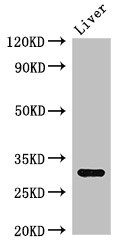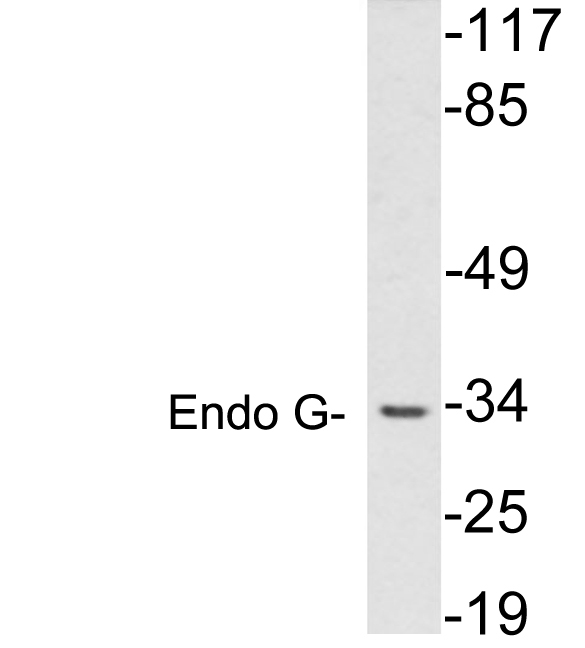![WB analysis of HepG2 cell lysate using GTX84985 EndoG antibody [7F2G10]. Working concentration : (A) 5 and (B) 10 μg/ml WB analysis of HepG2 cell lysate using GTX84985 EndoG antibody [7F2G10]. Working concentration : (A) 5 and (B) 10 μg/ml](https://www.genetex.com/upload/website/prouct_img/normal/GTX84985/GTX84985_3300_WB_20180221_w_23061420_330.webp)
WB analysis of HepG2 cell lysate using GTX84985 EndoG antibody [7F2G10]. Working concentration : (A) 5 and (B) 10 μg/ml
EndoG antibody [7F2G10]
GTX84985
ApplicationsWestern Blot, ELISA
Product group Antibodies
ReactivityHuman, Rat
TargetENDOG
Overview
- SupplierGeneTex
- Product NameEndoG antibody [7F2G10]
- Delivery Days Customer9
- Application Supplier NoteWB: 5 - 10 microg/mL. *Optimal dilutions/concentrations should be determined by the researcher.Not tested in other applications.
- ApplicationsWestern Blot, ELISA
- CertificationResearch Use Only
- ClonalityMonoclonal
- Clone ID7F2G10
- Concentration1 mg/ml
- ConjugateUnconjugated
- Gene ID2021
- Target nameENDOG
- Target descriptionendonuclease G
- Target synonymsendonuclease G, mitochondrial, endo G, mitochondrial endonuclease G
- HostMouse
- IsotypeIgG1
- Protein IDQ14249
- Protein NameEndonuclease G, mitochondrial
- Scientific DescriptionThe fragmentation of nuclear DNA is a hallmark of apoptotic cell death. The activities of caspase and nuclease are involved in the DNA fragmentation. Caspase-activated deoxyribonuclease (CAD), also termed DNA fragmentation factor (DFF40), is one such nuclease, and is capable of inducing DNA fragmentation and chromatin condensation after cleavage by caspase-3 of its inhibitor ICAD/DFF45. Caspase and CAD independent DNA fragmentation also exists. Recent studies demonstrated that another nuclease, endonuclease G (EndoG), is specifically activated by apoptotic stimuli and is able to induce nucleosomal fragmentation of DNA independently of caspase and DFF/CAD. EndoG is a mitochondrion-specific nuclease that translocates to the nucleus and cleaves chromatin DNA during apoptosis. The homologue of mammalian EndoG is the first mitochondrial protein identified to be involved in apoptosis in C. elegans. EndoG also cleaves DNA in vitro.
- ReactivityHuman, Rat
- Storage Instruction-20°C or -80°C,2°C to 8°C
- UNSPSC41116161







![WB analysis of HepG2 cell lysate using GTX84986 EndoG antibody [7F2D7]. Working concentration : (A) 5 and (B) 10 μg/ml](https://www.genetex.com/upload/website/prouct_img/normal/GTX84986/GTX84986_3301_WB_20180221_w_23061420_836.webp)